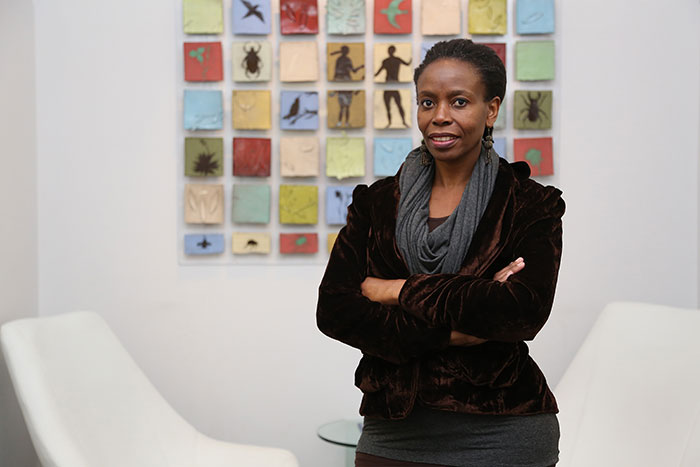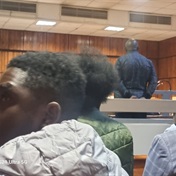
The Western Cape High Court has dismissed an application challenging the appointment of Lis Lange, as the deputy vice-chancellor for teaching and learning at the University of Cape Town (UCT).
Judge Nathan Erasmus on Tuesday ruled against Professor Elelwani Ramugondo and the university’s Black Academic Caucus, which claimed that UCT had flouted its rules when it appointed Lange in December 2017.
Ramugondo, a full professor at the university, lost out to Lange, an associate professor and former University of Free State vice-rector for academics.
Ramugonda in 2018 told City Press that she was overlooked because of institutional racism at UCT and was heading to court reluctantly after engaging internal structures.
“This case should not come as a surprise given that the UCT executive themselves have conceded that UCT needs to seriously address transformation.
“Institutional racism is a blind spot. Racists within an organisation that is experienced as racist by those who are marginalised, are unable to recognise the problem themselves,” she said at the time.
Read: Black prof takes UCT to court
In court papers, respondents in the matter were UCT, former UCT vice-chancellor and principal Max Price and Lange.
In his judgment, Erasmus said: “Having regard to the facts herein as summarised above, even if the university was an organ of state, which clearly it is not, and applying the doctrine of precedent, it would still not have been administrative action reviewable under the Promotion to Administrative Justice Act but rather a labour matter where the Labour Court have jurisdiction. Having found as above, this would dispose of the matter. In the event that I am wrong, I will deal with the question of whether the appointment of the third respondent [Lange] was rational and reasonable … ”
“Without elaborating on the individual objections raised against the appointment of the third respondent it is important to note that every purported negative aspect raised in this review was considered by the [UCT] council before reaching a final decision herein.
“In my view, having regard to the record one tests whether the decision was founded upon reason and it is rationally related to the purpose of the decision. Council considered all the issues and exercised its discretion to appoint the third responded, which process and appointment tested objectively, in my view, was rational, reasonable and in any event, did not fall foul of the principle of legality ... ”
“For the reasons stated above the application should accordingly be dismissed. The respondents did not pursue costs in this matter and consequently no order is made as to costs.”
University spokesperson Elijah Moholola said: “The UCT executive has noted the decision of the Western Cape High Court handed down on February 11 in relation to the process the university followed during 2017 before making an appointment to one of its deputy vice-chancellor positions. The UCT executive notes that this matter has now been resolved.”
In a statement, Ramugondo and the BAC said from the outset of the selection and appointment process for the post, they highlighted the substantive and procedural flaws.
“Approaching the courts was the last resort in the context where we were neither heard nor listened to. We would have preferred that the issues be resolved amicably, through a robust process of negotiation and mediation, to avoid a judicial course. Unfortunately, it had to come to this outcome of winners and losers decided by the courts.”
They said the judgment was a disappointment for Ramugondo and all those who support transformation at UCT and the broader society.
“It is a major setback for transformation in the higher education sector. We will study the judgment closely and take legal counsel before deciding on our next steps. We urge South Africans who care about transformation in the higher education sector to read the judgment very closely.”
The applicants said they were hoping that the court would clarify the following:
- How does a university set out to appoint a candidate who meets equity requirements for a position, but ends up with a seemingly underqualified, and a patently non-equity candidate?
- Can a university shift from terminology such as “appointable” or “not appointable” in relation to objective criteria as advertised for a position, to “suitable” or “unsuitable”, opaque terms with subjective criteria? and
- How does anyone get away with having their candidacy misrepresented for a key top position at a university?
They said their case was fundamentally about institutional integrity and good governance.
“At its core was how processes and procedures in our public institutions – such as the university uphold the highest standards of fairness, ensure equity, representation and advance transformation. These are essential tenets of our democratic society.
“They are pillars on which its constitutionalism rests for restoration of the dignity of the marginalised, and the protection of their human rights. The integrity of our institutions, and good governance, are key to building trust in and among those who work and participate in them as management; educators and students.
“They are about building trust between the institution and the society at large. This is even most critical in today’s national and global milieu, where there has been a distinct expression of lack of trust in public institutions by the broader populace.”
They thanked those who had supported and helped raise funds for the case.
“There are many individuals within UCT and beyond who shared words of encouragement and helped carry our spirits during this long and emotionally taxing journey. Our families in particular have been exceptional in seeing this journey as an important sacrifice to make, recognising the immense damage to our society that occurs when transformation fails at our esteemed institutions of higher learning. This is a sacrifice that was worth honouring,” the statement reads.




 Publications
Publications
 Partners
Partners









